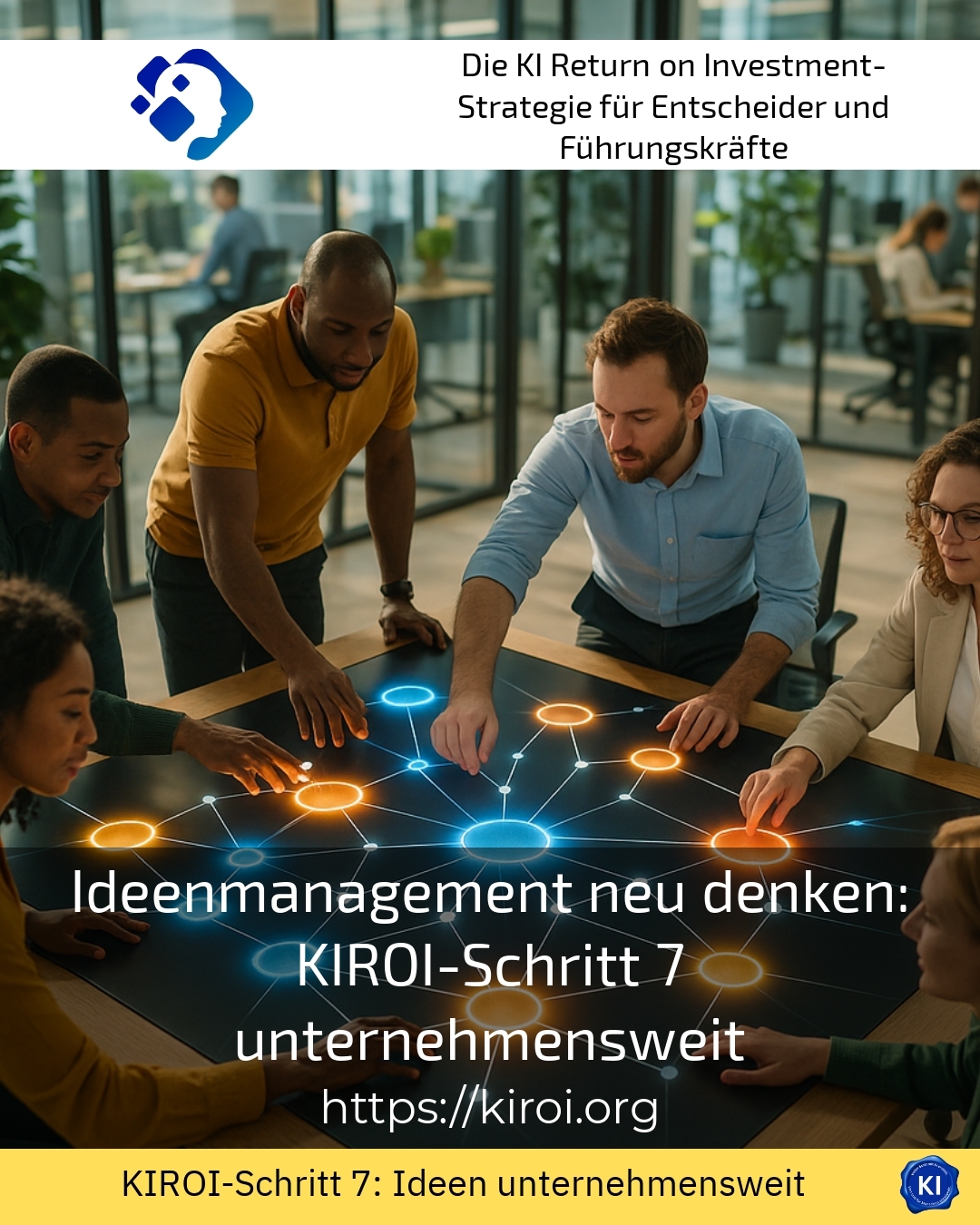In many companies today, idea management is no longer seen as a one-off action. Instead, it is seen as a continuous process that promotes creativity and systematically supports innovation. KIROI step 7 in particular shows how important it is to think about idea management company-wide and actively involve all employees. This creates a culture of innovation that has a lasting effect and brings about real change.
Idea management as a dynamic process
Today, idea management means much more than just collecting suggestions. It is about recognising, promoting and jointly developing creative impulses. Companies in the mechanical engineering industry, for example, use moderated workshops to shorten development loops and strengthen the transfer of knowledge between departments. In software development, teams benefit from regular feedback loops that improve collaboration and increase the quality of new features. Companies in the retail sector also use digital platforms to document ideas transparently and implement them quickly.
These methods turn idea management into a lively process that reaches all areas of the company. Employees feel valued and are more motivated to contribute their own ideas. This creates an environment in which innovation is not only possible, but also probable.
Idea management and the role of KIROI Step 7
Company-wide integration and networking
This is exactly where KIROI Step 7 comes in. It promotes networking between different departments and ensures that ideas do not remain isolated. In practice, this means that customer service, IT and marketing work together on new concepts, for example. This results in solutions that keep the big picture in mind and create real added value.
Innovation workshops are held regularly in industrial production to strengthen interdisciplinary dialogue. In software development, teams use joint retrospectives to gather feedback and improve collaboration. In retail, automated workflows ensure that submitted ideas can be quickly reviewed and implemented.
Transparency and continuous feedback
Another advantage of KIROI Step 7 is the transparency it creates. Employees can see how their ideas are being processed and receive continuous feedback. This strengthens trust and motivates them to continue to play an active role.
In the mechanical engineering industry, for example, all ideas are documented in a digital platform and discussed regularly. In software development, feedback loops are integrated into the development process so that improvements can be implemented quickly. In retail, ideas from different branches are collected and evaluated together, which promotes collaboration between locations.
BEST PRACTICE with one customer (name hidden due to NDA contract) In a manufacturing company, KIROI Step 7 was used to develop a concept that systematically identified obstacles to implementation. Targeted workshops improved the transfer of knowledge between the specialist departments, which significantly increased the speed of innovation projects. The measures led to a stronger culture of innovation and sustainable growth.
Practical tips for implementation
Using digital platforms
Digital platforms are an important building block for successful idea management. They make it possible to collect, evaluate and implement ideas transparently. In the mechanical engineering industry, such platforms are used to promote the transfer of knowledge between departments. In software development, they help to integrate feedback loops and improve collaboration. In retail, they ensure that ideas from different shops can be collected and evaluated.
Conduct moderated workshops
Moderated workshops are an effective tool for establishing idea management throughout the company. They promote dialogue between departments and help to identify obstacles to implementation at an early stage. In industrial production, such workshops are held regularly to strengthen interdisciplinary dialogue. In software development, teams use joint retrospectives to gather feedback and improve collaboration. In retail, workshops are used to discuss ideas from different locations and develop them further together.
Provide continuous feedback
Continuous feedback is an important part of idea management. It strengthens trust and motivates employees to continue to actively participate. In the mechanical engineering industry, for example, all ideas are documented in a digital platform and discussed regularly. In software development, feedback loops are integrated into the development process so that improvements can be implemented quickly. In retail, ideas from different branches are collected and evaluated together, which promotes collaboration between locations.
My analysis
Today, idea management is a decisive factor for a company's innovative strength. By applying KIROI Step 7 and similar approaches, companies can optimise their processes and strengthen the motivation of their employees. Integration into all areas of the company and clear communication are particularly important here. Companies that take a company-wide approach to idea management create a culture of innovation that has a lasting effect and brings about real change.
Further links from the text above:
Idea management: KIROI step 7 for company-wide innovation
Rethinking ideas management: KIROI step 7 in the company
Ideas management as a driving force in the company
For more information and if you have any questions, please contact Contact us or read more blog posts on the topic Artificial intelligence here.















